STEM careers can help Latinos fight social inequity, but students need to seize scholarships
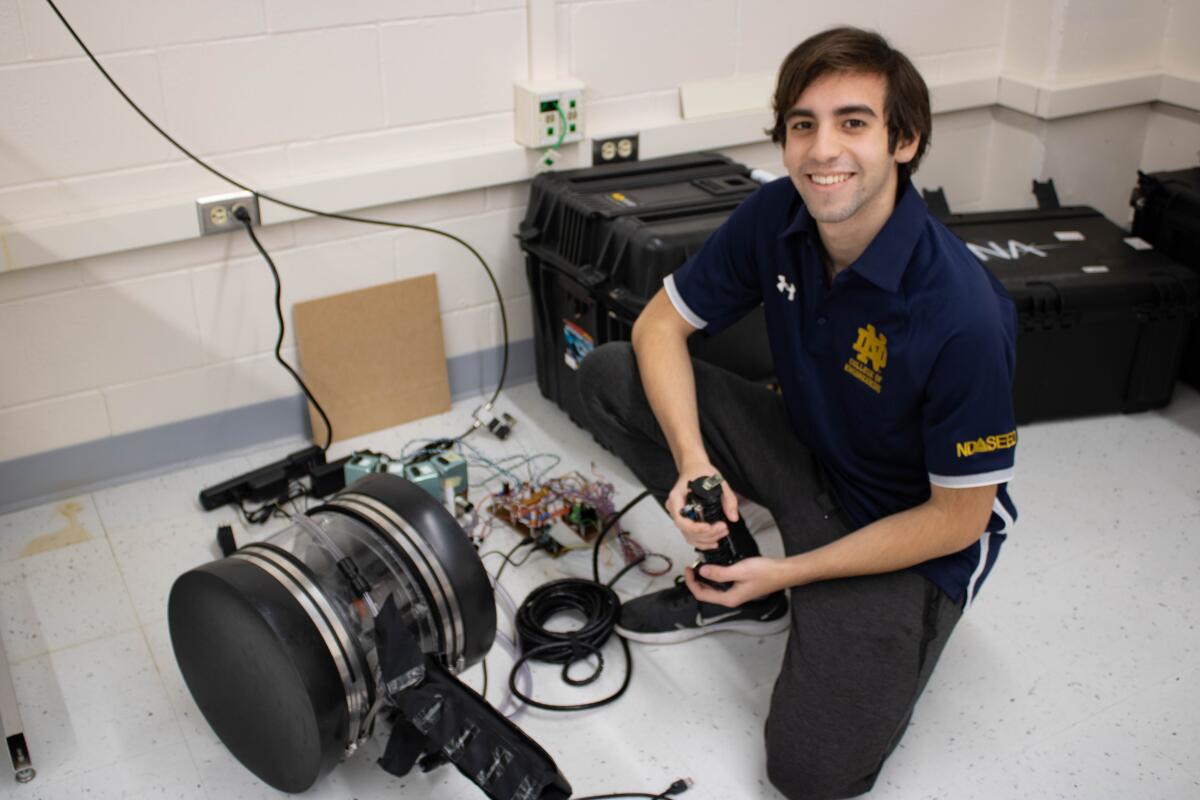
When William, one of my son’s best friends, told me he wasn’t going to continue studying, it almost made my stomach hurt. High school classes had finished, and grades were being handed in. His GPA, while not perfect, was very good in science and math.
Why are you leaving school? I asked.
“I’m not very good at school and from now until I would graduate with a degree, it’s going to be a long time, and I need to work now,” he told me. “Besides, I wouldn’t know how to pay for university.”
What if you got a scholarship?
How could I get one? he asked. “You have to be a ‘nerd’ for that, and the truth is that I am not that good at school.”
Two weeks later he returned very happy. He had found a $25-an-hour job at one of the Inland Empire department stores and was going to earn about $1,000 a week at age 19. With a smile, he told me, “I don’t think even my dad earns what I’m going to earn now.”
At his age, $52,000 a year may seem like a lot of money. But it is not, especially in a state like California where the cost of living has soared.
Another of my children’s friends who graduated from high school with a 3.9 GPA also decided not to continue studying.
“My family has no money and I don’t think I can get a scholarship,” he told me at a farewell party my sons threw for him after he’d decided to join the Army and was about to start his training in Arizona.
What is wrong with them? I thought. They both could have had bright futures if they’d decided to continue studying, but above all if they’d had the motivation, the self-confidence and a role model.
This, unfortunately, is the reality for thousands of Latino students, children of working families, who have had neither the resources nor the information to help their children make better decisions for their futures.
“This must change,” María Fernanda Trochimezuk tells me. She came to the United States in 2000 to continue her studies, precisely because she obtained a scholarship.
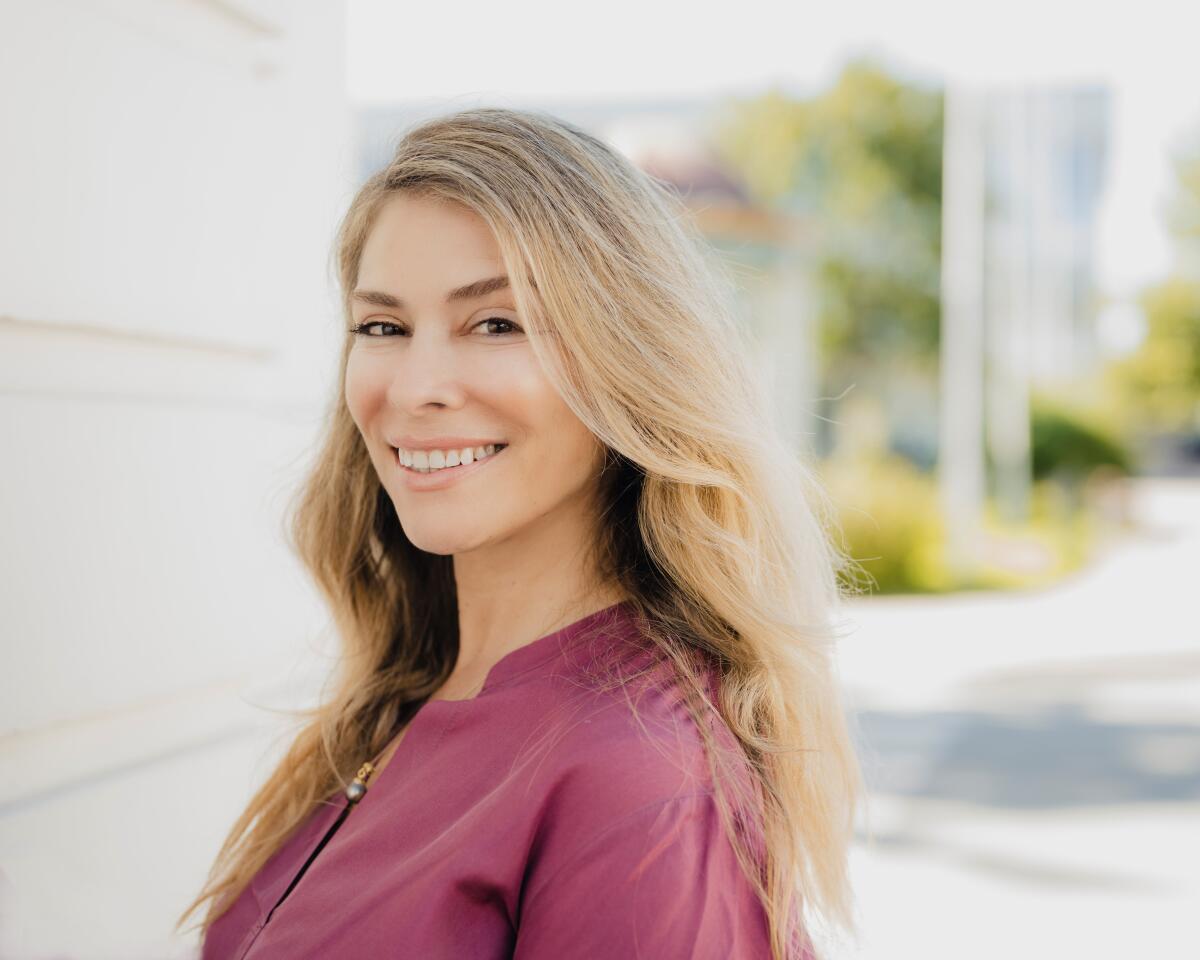
After studying marketing at UC Santa Barbara and being nationally selected to be part of the Stanford Latino Entrepreneurship Initiative program, Trochimezuk never imagined that she would dedicate herself to building a path for students interested in careers in science, technology, engineering and mathematics by providing them with access to economic resources and information.
Why help students seeking those careers and not others?
“Simply because they are the ones where you can earn more money and there are more job opportunities,” she tells me.
In 2021, in the midst of the COVID-19 pandemic and while she was becoming a mother, Trochimezuk formed an organization called IOScholarships, which aims to help young people like my children’s friends find the necessary scholarships to continue studying. “Every year there are so many scholarships that nobody applies for. That’s a waste.”
She’s right. The National Scholarships Providers Assn. (IOScholarships is a member of that organization) reports that in the last 10 years, the number of scholarships awarded has increased by more than 45%. Yet an estimated $100 million in scholarships goes un-awarded each year, largely due to a lack of applicants, Forbes reported in November 2021.
A path to follow
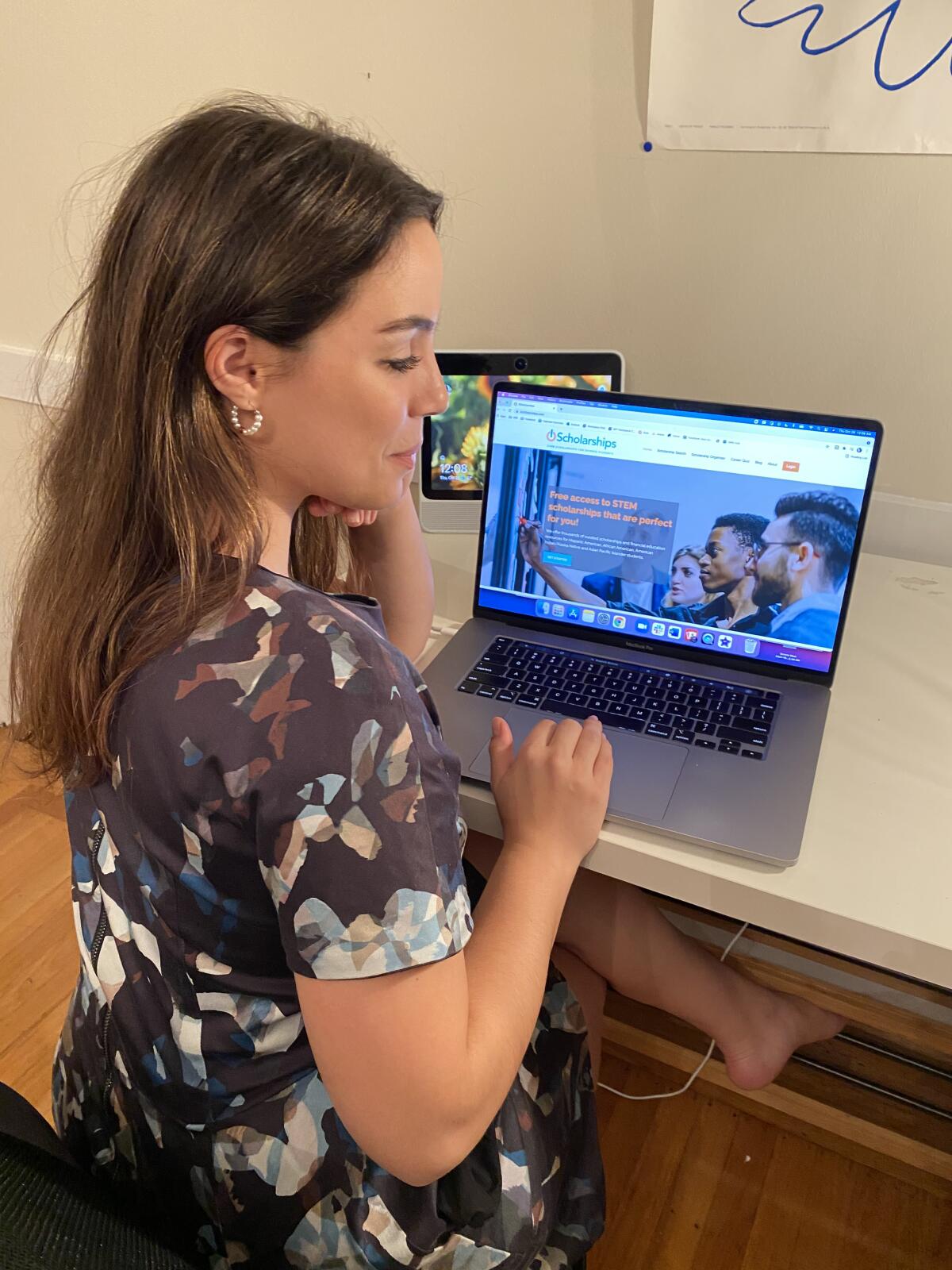
IOScholarships fulfill several objectives. The first, Trochimezuk said, is to help students learn about these scholarships and internships, and help them get them.
“The next goal is to put them in touch with other students who have already traveled the path and who can motivate them to keep going.”
Trochimezuk used her own savings to create a platform that works through a series of algorithms to match each student with the scholarship that best suits them. She subsequently received funding from Google PowerUp.
Although this tool is relatively new, its success has been enormous. So far more than 10,000 students have applied for scholarships through IOScholarships.
“My goal is to get more than a million young people to apply for scholarships through this platform and to contribute more than $1 billion to the economy with their workforce,” said Trochimezuk, who spent her early years in Buenos Aires. “Since I was a child, my parents said that I liked networking with my friends. So that’s what I keep doing.”
She isn’t an activist who fights against the lack of opportunities or decries the inequities that Latino and other minority students face. Instead, she has focused her work on creating a community network of services that students can turn to, not only to seek funding for their studies, but to meet other Latinos who have stood out and are already working in the fields of science and technology.
“I believe in education as the main tool for social change,” she tells me.
Please open the door
“We need to create role models, we need other successful young Latinos to open the doors for those who come behind. If we don’t help ourselves, nobody is going to do it,” Trochimezuk said.
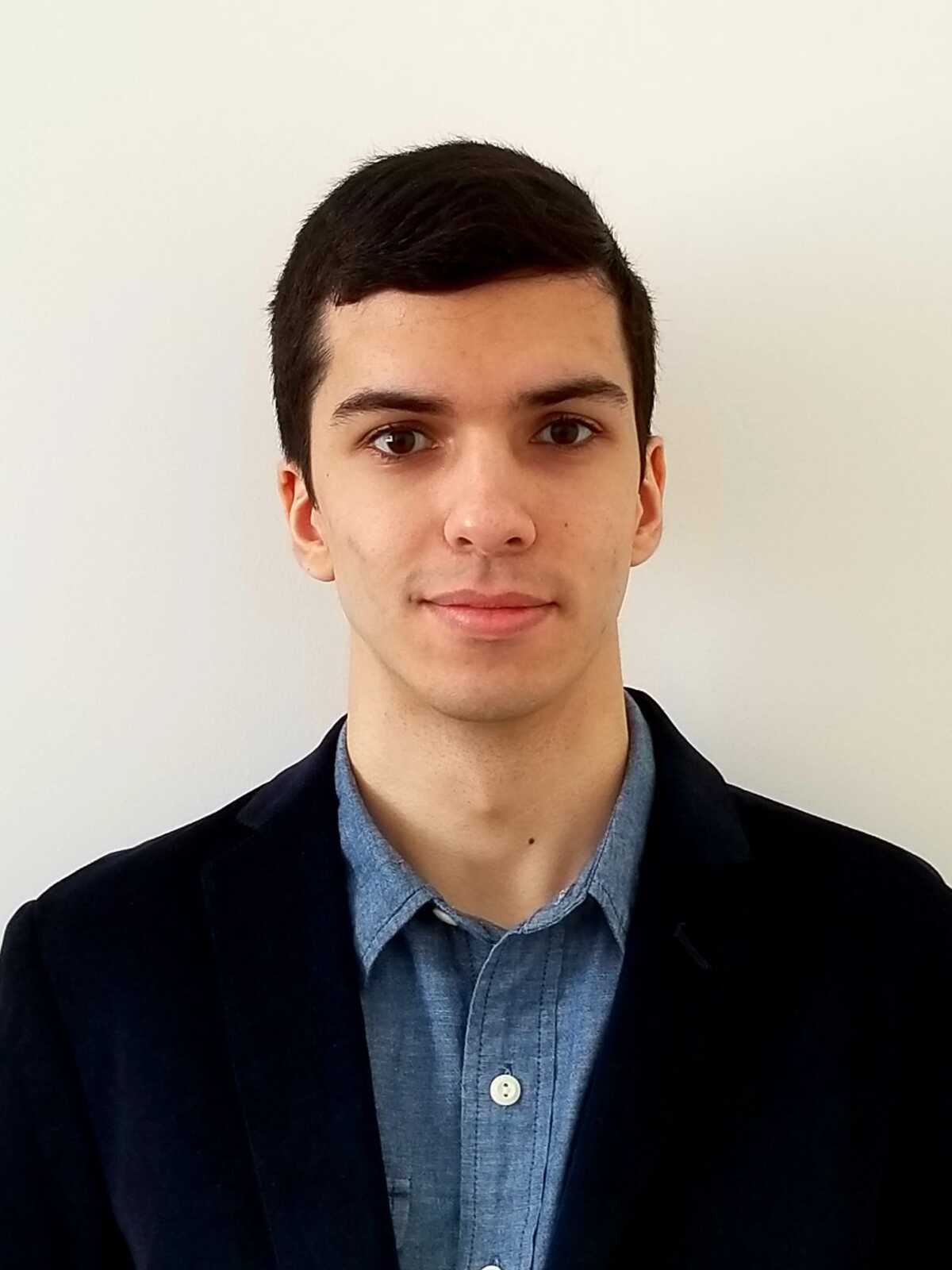
In some places, the door seems tightly shut. In Silicon Valley, for example, where the largest number of STEM jobs in the country are concentrated, and where the Latino population is almost 50%, less than 3% of high-tech, high-wage jobs are filled by Latino professionals.
She believes that the best way to break the cycle of poverty is by accessing well-paid STEM jobs. U.S. Department of Labor figures confirm it. While all non-STEM occupations in the United States had an average salary of $40,120 per year in 2021, the average income for STEM occupations was more than double, at $95,420 per year.
According to a Department of Labor report titled “Beyond the Numbers,” IT professions are expected to be in high demand over the next decade.
The fastest growing STEM careers that pay more than $100,000, according to the finance website Smartasset, are: physicists (median salary $152,430); computer and information researchers ($131,490); computer engineers ($128,170); computer network architects ($120,520); actuaries ($105,900); information security analysts ($102,600); and biochemists and biophysicists ($102,270).
Every month, Trochimezuk said, IOScholarships adds new scholarships to its database and also posts a “Scholarship of the Week” on its Instagram (@IOScholarships) network accounts. In addition, the site features a scholarship organizer, news designed to provide guidance on applying, and money-saving tips. The platform also offers a career aptitude quiz designed to help students identify degrees and professions that best match their abilities and streams a podcast called “Superheroes,” where ethnic minority students can hear about the path other students in similar circumstances have followed.
“GPA isn’t everything,” said Trochimezuk. “One of the most important aspects is the essay that the universities and those who provide the scholarships ask for. The essay is often more important than the GPA, because it shows the persistence capacity of the person to face and solve the difficulties.”
Josue Gil-Silva, one young person who has obtained a scholarship from the Hispanic Scholarship Fund, agrees.
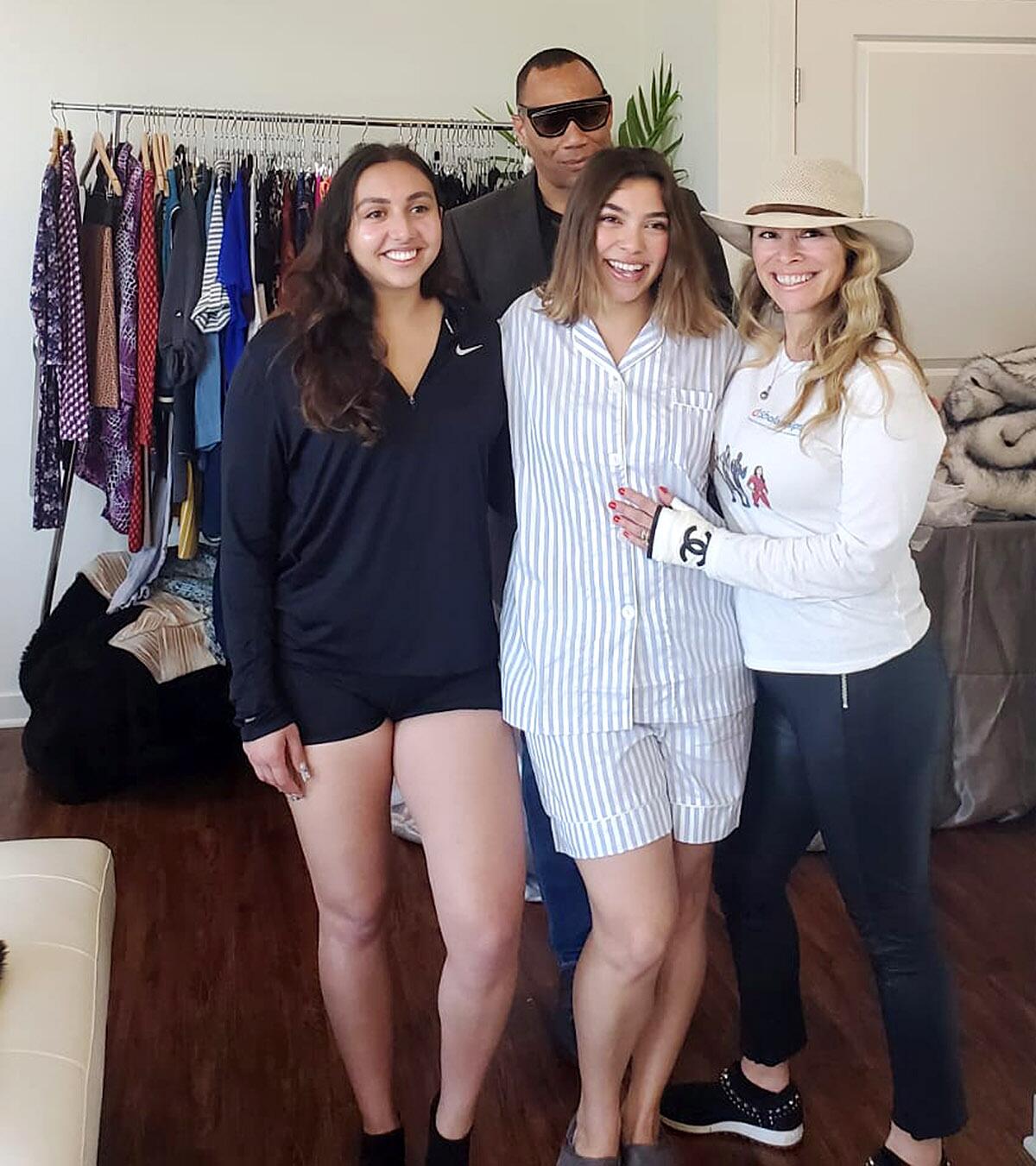
“What I always recommend to other students is that they write openly, that they expose the difficulties they have faced and that they aim for the most important scholarships, without fear of failure. The worst that can happen is that they say ‘no.’”
There are many cases where efforts are well rewarded, like that of Alyssa Garbarino, who studies biology at Cal State Channel Islands and leads the Neuroscience Society. She wants to become a doctor despite her personal and financial problems.
Her path isn’t easy. To support her studies, she works as a babysitter three days a week and does research 10 hours a week as part of a research grant.
She recently was going to a job interview and realized that she did not have the right clothes. Fortunately, she was selected by the Giving Closet organization to receive a surprise wardrobe worth more than $10,000.
“The only way to get ahead is by helping each other,” Trochimezuk said. “The reward is in sight.”
More to Read
Sign up for Essential California
The most important California stories and recommendations in your inbox every morning.
You may occasionally receive promotional content from the Los Angeles Times.











